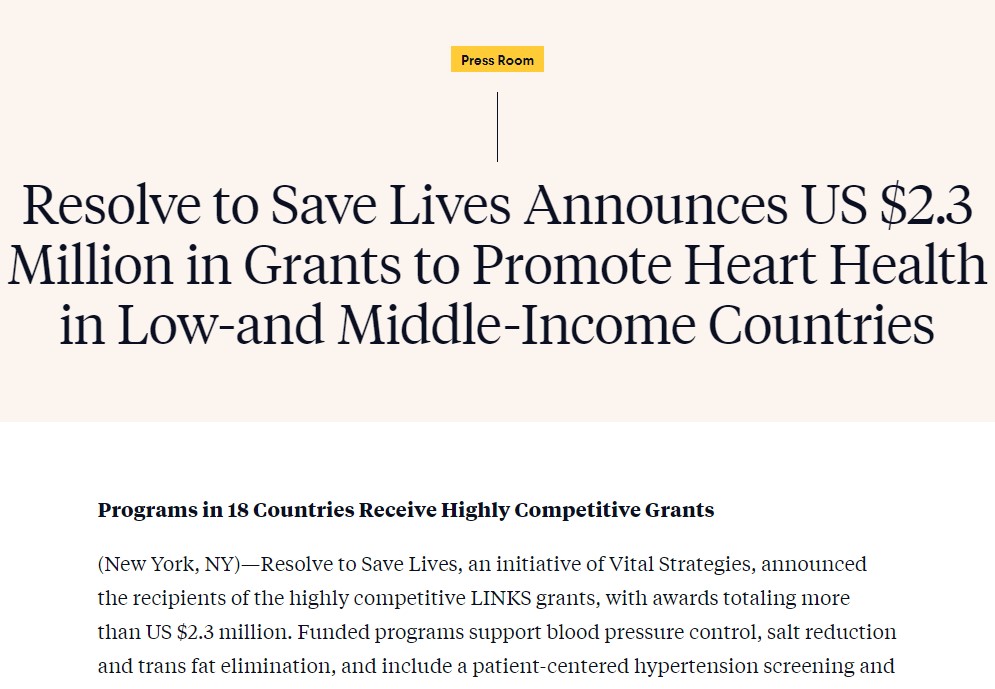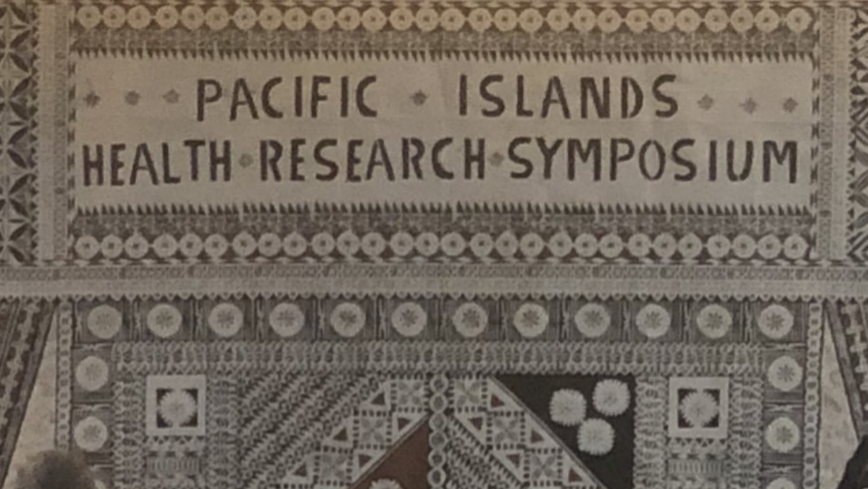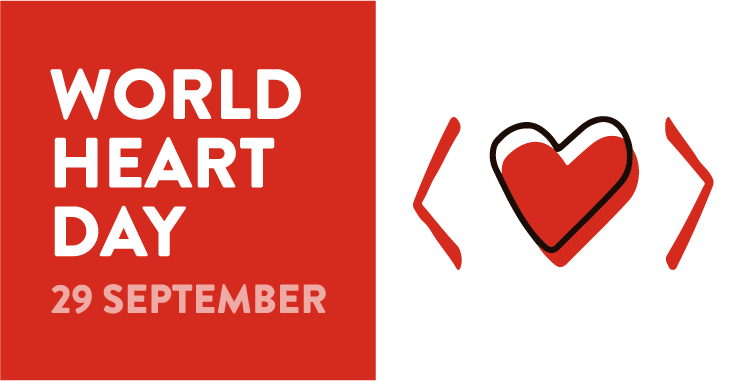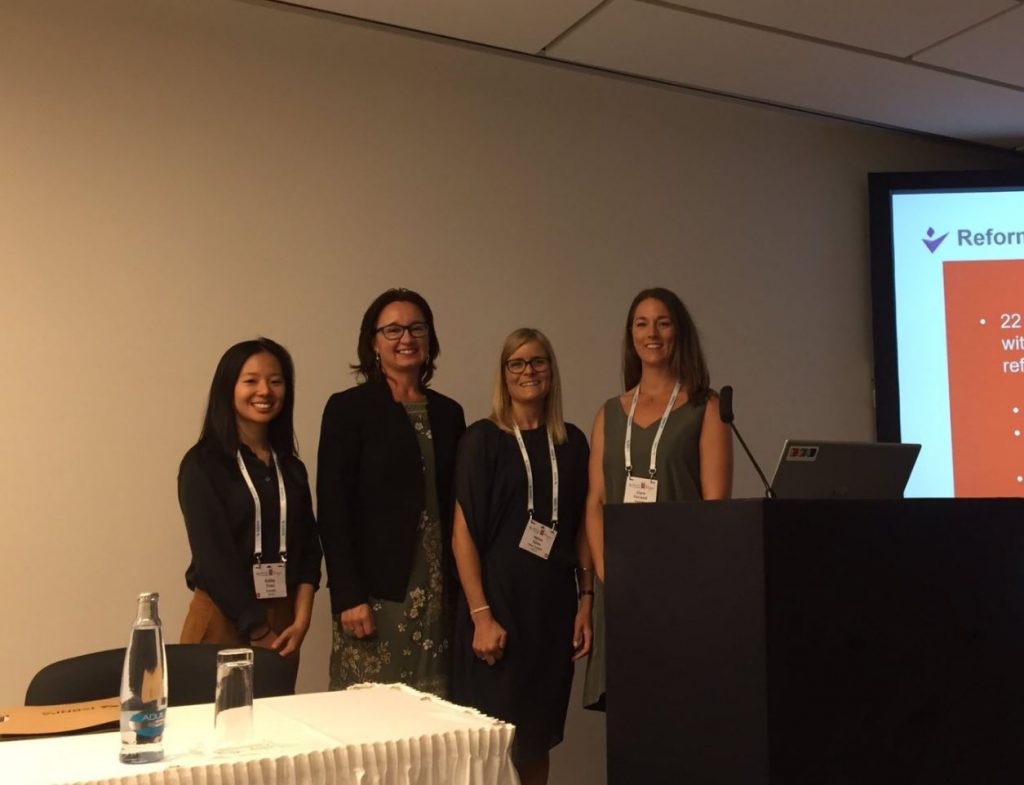Recipients of LINKS grant

The George Institute for Global Health are part of two successful Resolve to Save Lives, LINKS grants this year. The highly competitive grants of over US$2.3million in total will be supporting programs that promote heart health in 18 countries. The George Institute alongside Ministry of Health Malaysia, National University of Malaysia and WHO Office in […]
Food industry fails to drop the salt – evaluation of self-regulation in Australia

Researchers from The George Institute for Global Health analysed data from the Foodswitch database to assess if there were any changes in salt content between 2013 and 2017 in over 4,500 products from 16 Australian food manufacturers. The study found no clear evidence of reductions in salt levels overall, including 10 member companies of The […]
EFSA establishes sodium and chloride dietary reference values

In September, the European Food Safety Agency (EFSA) published dietary reference values for sodium and chloride. Dietary reference values for the European general adult population were established at 2.0 g sodium (5.0g salt) and 3.1g chloride per day. Values for children and pregnant and lactating women were also established. More information can be found here.
Salt levels in meat alternatives – Australia

On the 10th of September, the Victorian Salt Reduction Partnership released a report written by The George Institute for Global Health on the salt content of meat alternatives in Australia. The research revealed some meat free products contain up to half a day’s worth of salt in one serve. Meat-free bacon, falafels and meat-free sausages […]
Pacific Island Health Research Symposium

On the 29th and 30th of August the Fiji National University hosted the Pacific Island Health Research Symposium on the Coral Coast, Fiji. The Symposium was the biggest conference of its kind in Fiji, and included presentations from students and academics from Fiji, neighboring Pacific Island countries, Australia and New Zealand. A diverse range of […]
Scaling-up food policy interventions to reduce NCDs in the Pacific Islands

In August this year, National Health and Medical Research Council (NHMRC) grants were officially awarded through the Global Alliance of Chronic Disease (GACD) funding round, focused on scaling up interventions to reduce the burden of diabetes and hypertension. The George Institute was awarded funding in partnership with Fiji National University, Deakin University and the University […]
Warning labels on salt packages and dispenses – policy statement from the World Hypertension League

The World Hypertension League (WHL) have highlighted the need for a hard-hitting approach to dietary salt reduction given the ongoing burden of disease attributable to a high salt intake. Find the full statement here. WHL established a coalition of global experts who have called for salt packages and dispensers to carry warning labels highlighting the […]
Costa Rica – World Health Day celebration

The Costa Rican team of the multi-center project “Scaling-up and evaluating salt reduction policies and programs in five countries in Latin America” launched open educational materials for World Heart Day celebrations on the 29th of September. These educational materials are intended to sensitize and develop skills in children, adolescents and their families to reduce excessive […]
To legislate or not to legislate? The need for legislative policies in food reformulation

During this year’s International Society of Behavioral Nutrition and Physical Activity conference a symposium was conducted on the use of legislation to aid reformulation and create healthier food environments. A/Prof Jacqui Webster chaired the symposium which included three presentations, the first by Clare Farrand from The George Institute (TGI) on a rapid review of sugar […]
Creating healthy, sustainable, city food environments – Putting lived experiences first

A thought leadership event on ‘creating healthy, sustainable, city food environments’ was held on the 20th of June at the George Institute’s Oxford office. The event involved a keynote presentation by Prof Corinna Hawkes, distinguished fellow at The George Institute for Global Health. Corinna focused on the need for a “people-centred” approach that draws on […]